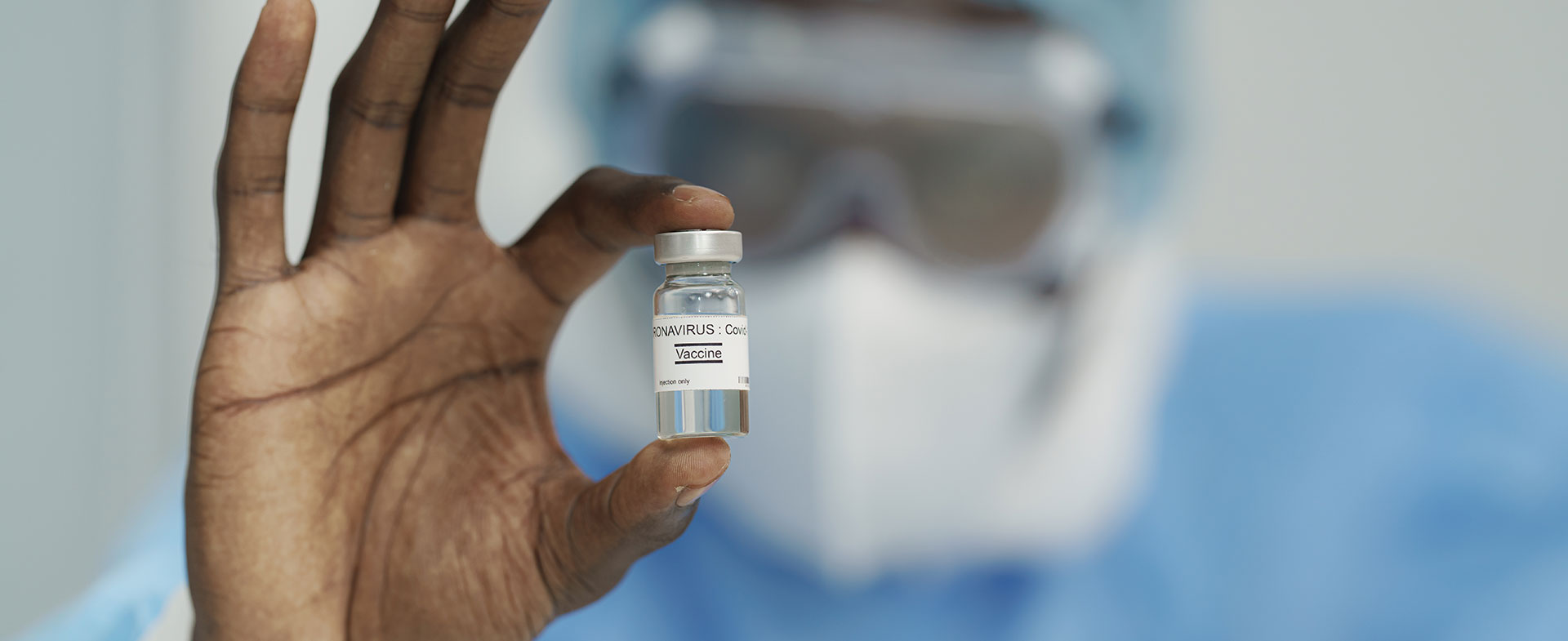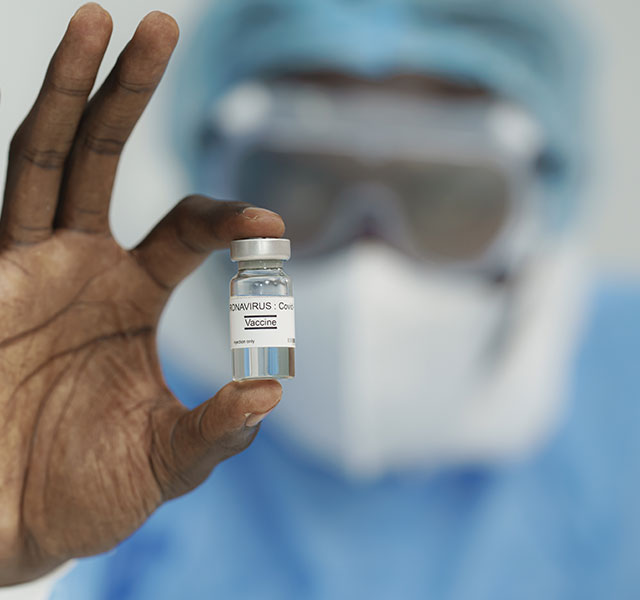Three safe, effective COVID-19 vaccines are available in the United States: Pfizer, Moderna and Johnson & Johnson. All three have been put through rigorous clinical trials to determine their safety and efficacy, and all three have been proven to greatly reduce the chance of contracting COVID-19. These vaccines, in short, are life savers. They are a critical piece of the puzzle to stopping new variants from spreading and ensuring that COVID-19 will no longer be a pandemic that threatens the lives of those in our community and around the world.
But although the vaccines have been in use for more than a year (clinical trials first began in mid 2020), rumors are still circulating about the COVID-19 vaccines. To set the record straight, Dennis Cunningham, M.D., medical director of infection control and prevention at Henry Ford Health, debunks 10 vaccine myths.
1. Myth: The vaccines aren't safe because they were developed quickly. This is FALSE.
“The COVID-19 vaccines themselves were developed quickly, but the clinical trials to examine safety and efficacy weren’t rushed at all,” says Dr. Cunningham. “Safety was not compromised in any way. What happened quickly was finding the vaccine to test. In the 1980s, it took scientists so long to do this, but thanks to scientific advances we’ve made over the years, we can find viruses so quickly.”
Also, he adds, COVID-19 is similar to other coronaviruses we’ve seen in humans, like MERS and SARS, so there was previous research that could be used to speed up the process.
2. Myth: The vaccines can lead to long-term effects. This is FALSE.
“With vaccines, if there is going to be a complication or side effect (like an allergic reaction, for example) it will occur within minutes to hours of receiving the vaccine,” says Dr. Cunningham. “If we’re not seeing serious side effects now, we can pretty much know it will be safe down the road.”
Also, while the COVID-19 vaccines may be new, the mRNA technology used to create them has been used for decades in treatments for cancer, influenza, Zika and rabies. This experience has informed us that unknown, delayed side effects show up within two months of receiving the vaccine. These vaccines have been in use for many months, since the first vaccine trials were conducted over a year ago. There are no long-term side effects to worry about.
3. Myth: You can get COVID-19 from the vaccines. This is FALSE.
“There’s no live virus in the vaccines, so they can’t infect you,” says Dr. Cunningham. “Basically, the vaccines make our bodies produce one single protein from the virus—the protein that infects our cells. By making that protein, we prevent infection. You might have side effects like a headache or chills, but that’s because your body is creating an immune response, not because you have an infection.”
4. Myth: I’ve already had COVID-19, so I don’t need to get vaccinated. This is FALSE.
Even if you have already had COVID-19, you should get vaccinated. New data shows that the vaccines provide better protection against the COVID-19 variants than natural immunity after infection.
“If you have had COVID-19, research suggests you have some natural protection from your own antibodies,” says Dr. Cunningham. “However, we don’t know how effective that protection is or how long it will last. A benefit of getting vaccinated is that you will have a higher, more predictable level of protection against the virus.” Future research will tell us more about exactly how long we are protected after vaccination.
5. Myth: People with underlying conditions shouldn’t get vaccinated. This is FALSE.
People who have underlying conditions—like diabetes and heart disease, for example—are at a high risk for getting complications from COVID-19, so it’s even more reason why they should get vaccinated, says Dr. Cunningham. If you have concerns, talk to the doctor who is helping you manage the condition.
6. Myth: People with suppressed immune systems shouldn’t get vaccinated. This is FALSE.
People with suppressed immune systems (like from cancer treatments or autoimmune diseases) should definitely get vaccinated. “The vaccines will not hurt you since they don’t contain a live virus,” says Dr. Cunningham. “Those with suppressed immune systems will still get protection from COVID-19, just not as much protection as those with healthy immune systems.” Again, talk with your doctor if you have specific concerns.
7. Myth: The COVID-19 vaccines will alter your DNA. This is FALSE.
“The Pfizer and Moderna vaccines use messenger RNA (mRNA) to protect us from COVID-19, and I think that is where this rumor comes from,” says Dr. Cunningham. “mRNA gives our cells the blueprints for the factories that will build the protein to protect us from COVID-19. People get scared that mRNA will cause the virus to go into our DNA and mutate us, but it does not even go into the center part of the cell where we have our DNA. It doesn’t affect DNA at all.”
8. Myth: If you get vaccinated, it could make you infertile. This is FALSE.
There is absolutely no data from the clinical trials or any theoretical reason as to why or how the vaccines could cause infertility. Women who participated in the COVID-19 clinical trials were able to conceive after vaccination. “In fact, we know that pregnant women with COVID-19 infections are at a higher risk of having a miscarriage or going into premature labor, which is all the more reason to get vaccinated,” says Dr. Cunningham.
9. Myth: If I’m pregnant or breastfeeding, I shouldn’t get vaccinated. This is FALSE.
It is safe to get vaccinated during any stage of pregnancy or while breastfeeding. “If you get vaccinated during your third trimester, you could potentially pass protective COVID-19 antibodies to the baby, but it is safe to get vaccinated during any stage of pregnancy,” says Dr. Cunningham. “And evidence has shown that breastfeeding people who have received COVID-19 mRNA vaccines have antibodies in their breastmilk, which could help protect their babies from COVID-19.”
10. Myth: I don’t need to get vaccinated because I’m young and healthy. This is FALSE.
While young, healthy people are less likely to get sick than older people, they can and have ended up in the ICU with COVID-19. And even if they remain asymptomatic, they can have long-haul symptoms for months after the virus has cleared their system.
Also: they can unknowingly carry COVID-19 to those who are more vulnerable and put loved ones in danger of becoming severely sick. “The key to ending the pandemic is having everyone get vaccinated—not just those who are most vulnerable,” says Dr. Cunningham.
Still need your COVID-19 vaccine? Schedule an appointment.
Learn more about the COVID-19 vaccines.
Dr. Dennis Cunningham is the medical director of infection control and prevention at Henry Ford Health.



